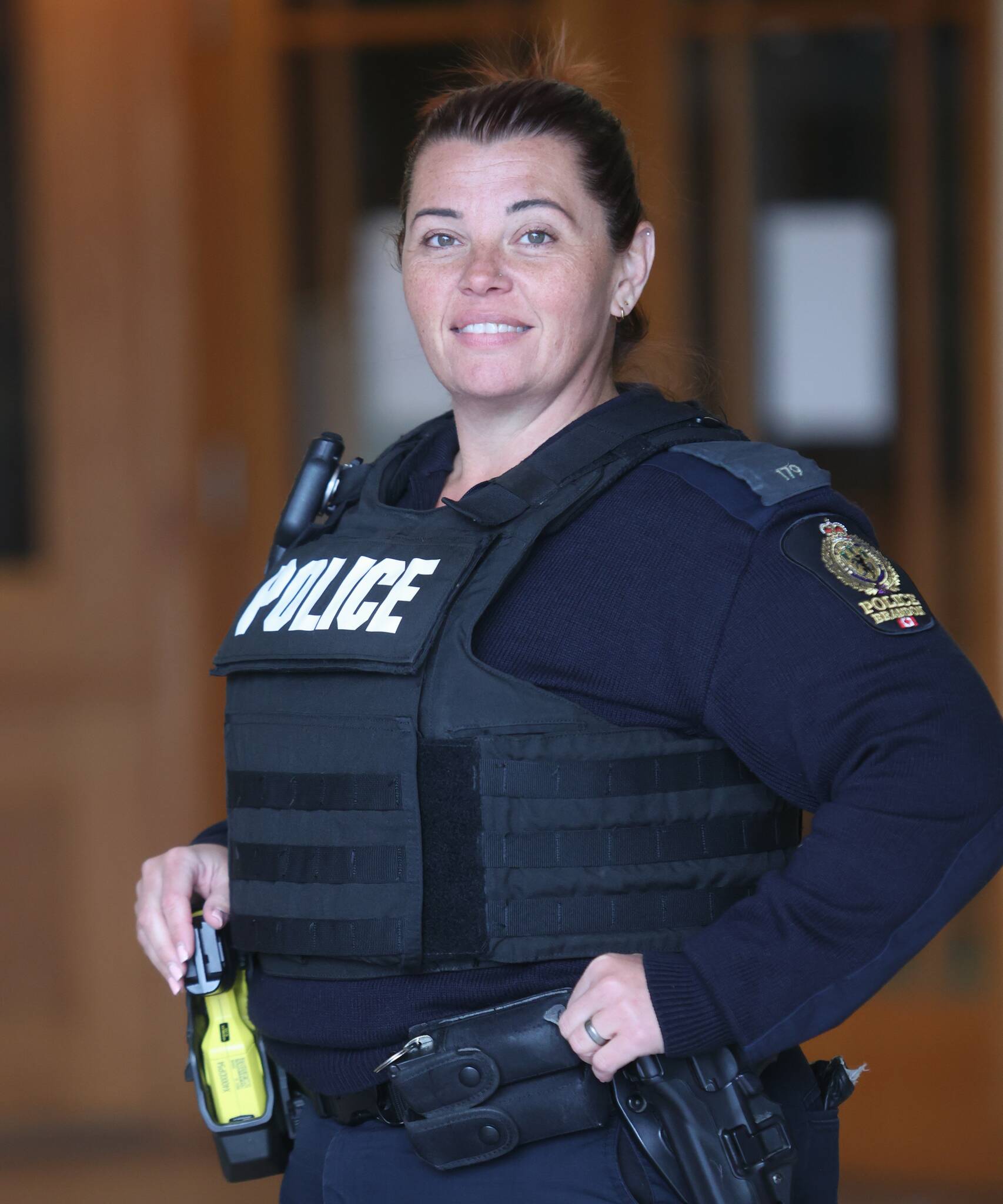Health
Brandon Police Service Defends Crisis Unit Against Academic Criticism

The Brandon Police Service (BPS) is standing by its decision to establish a crisis response unit that integrates police officers with mental health professionals, despite criticism from two academics. The initiative aims to address mental health emergencies in a more effective manner but has sparked debate regarding its potential efficacy.
In an opinion piece published in the Winnipeg Free Press, professors Christopher Schneider and Ania Theuer from Brandon University raised concerns about the unit, suggesting that there is insufficient evidence to support the effectiveness of such collaborations. They acknowledged the positive intent behind pairing officers with psychiatric nurses but emphasized that no concrete data exists to validate this approach.
The academics articulated their worries that embedding mental health services within a police framework could perpetuate the stigma surrounding mental illness. They suggested this might reinforce the notion that individuals experiencing mental health crises are inherently dangerous.
In response, BPS Constables Amanda Conway and Cecelia Joss issued a rebuttal, stating that while police officers are not mental health experts, mental health professionals also lack the training to manage high-risk situations where public safety is at stake. They referenced the Winnipeg Police Service‘s Alternative Response to Citizens in Crisis (ARCC) program, which reported that 82 percent of engagements were resolved without requiring hospital or justice system involvement during its first year in 2022.
The constables argued that Schneider and Theuer’s characterization of the crisis response unit as a “feel-good Band-Aid solution” overlooks the real-world benefits of such programs. In their letter, they highlighted the improvements observed in response times and client satisfaction in Winnipeg’s ARCC program.
Schneider responded to the constables’ remarks, welcoming dialogue but cautioning against the perception that individuals with mental illness pose a significant danger. He pointed out that this viewpoint has been contested in reputable academic journals, specifically the Journal of Criminology. Schneider likened the proposed integration of police with mental health units to expecting police officers to assist in medical procedures, arguing it risks further stigmatizing those in crisis.
Theuer, who has over a decade of experience working in mental health crisis response, expressed disappointment regarding the focus on police involvement rather than community mental health resources. “It’s deflating to see what’s needed, which is community mental health care,” she stated.
In a statement to the Brandon Sun, BPS Chief Tyler Bates emphasized the necessity of considering safety in crisis situations. He noted the diverse nature of mental health calls, which can range from peaceful encounters to volatile situations involving weapons. “The threat of harm to participants in this process is real,” Bates said, underlining the importance of being prepared for a range of potential scenarios.
As the Brandon Police Service moves forward with its crisis response unit, the dialogue between law enforcement and mental health professionals continues, reflecting broader societal discussions about the best ways to support individuals in crisis.
-

 Science3 months ago
Science3 months agoToyoake City Proposes Daily Two-Hour Smartphone Use Limit
-

 Health4 months ago
Health4 months agoB.C. Review Reveals Urgent Need for Rare-Disease Drug Reforms
-

 Top Stories4 months ago
Top Stories4 months agoPedestrian Fatally Injured in Esquimalt Collision on August 14
-

 Technology3 months ago
Technology3 months agoDark Adventure Game “Bye Sweet Carole” Set for October Release
-

 World3 months ago
World3 months agoJimmy Lai’s Defense Challenges Charges Under National Security Law
-

 Lifestyle4 months ago
Lifestyle4 months agoVictoria’s Pop-Up Shop Shines Light on B.C.’s Wolf Cull
-

 Technology3 months ago
Technology3 months agoKonami Revives Iconic Metal Gear Solid Delta Ahead of Release
-

 Technology3 months ago
Technology3 months agoApple Expands Self-Service Repair Program to Canada
-

 Technology3 months ago
Technology3 months agoSnapmaker U1 Color 3D Printer Redefines Speed and Sustainability
-

 Technology3 months ago
Technology3 months agoAION Folding Knife: Redefining EDC Design with Premium Materials
-

 Technology4 months ago
Technology4 months agoSolve Today’s Wordle Challenge: Hints and Answer for August 19
-

 Business4 months ago
Business4 months agoGordon Murray Automotive Unveils S1 LM and Le Mans GTR at Monterey









